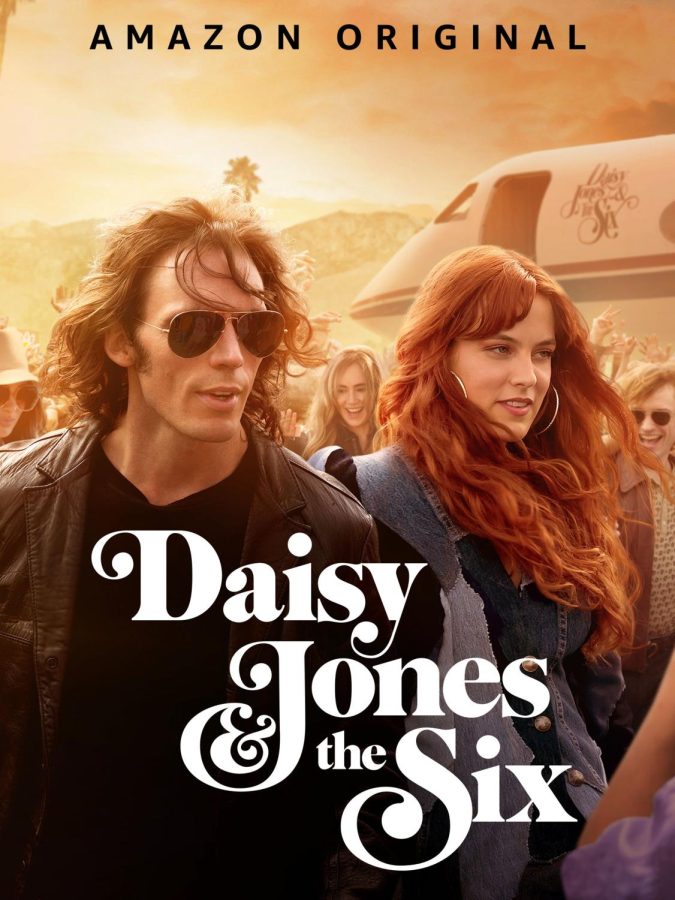Daisy Jones and the Six love triangle trying
Based on the hit novel by Taylor Jenkins Reid, Daisy Jones and the Six first premiered on Mar. 3 on Prime Video (Rotten Tomatoes)
March 29, 2023
Daisy Jones and the Six first premiered on Mar. 3 on Amazon Prime Video. With the 10th and final episode hitting the platform on Mar. 24, the series has quickly become one of the most watched shows on the platform. Developed for television by Scott Neustadter and Michael H. Weber, the show is based on the hit novel by Taylor Jenkins Reid and stars Riley Keough (Daisy Jones), Sam Claflin (Billy Dunne), Camila Morrone (Camila Dunne), Suki Waterhouse (Karen Sirko), Will Harrison (Graham Dunne), Sebastian Chacon (Warren Rhodes) and Josh Whitehouse (Eddie Roundtree).
The show follows the journey of an up-and-coming band in the mid to late 1970s, and highlights their twists and turns throughout fame, addiction, and a mildly infuriating love triangle. In a part-interview, part traditional format, the series dissects the rise and fall of Daisy Jones and the Six, and the relationships within that threaten the band’s success.
The visual design and costumes of the show are cohesive and work well to transport watchers to the time period of the story–thankfully, no Party City bell bottoms and tacky sunglasses involved. However, the truly amazing parts of the show lie within its characters. We see journeys of self-discovery, self-hate and substance abuse, and finally self love throughout the series and with multiple characters, though Billy Dunne and Daisy Jones take the brunt of the focus.
Though raised in a wealthy lifestyle, Daisy found herself regularly neglected by her parents, which is seen clearly in the relationship dynamics she builds throughout the show. The actress, Riley Keough, perfectly executes this by showing Daisy’s desire for independence, but also her inability to take care of herself. Most noticeably, Daisy’s friendship with Simone Jackson (Nabiyah Be) clearly shows her lack of parental support at a young age, as she relies on Simone to care for her throughout her drug addiction, questionable relationship choices, and occasional manic episodes.
Additionally, the portrayal of female friendships and forgiveness, though a smaller aspect, was widely well completed. The actors flawlessly portrayed the worst and best parts of their characters, and the relationships formed between them was a thrill to watch.
Unfortunately, the main plot point of the book–being the pseudo love triangle between Billy Dunne, his wife Camila, and Daisy Jones–was one of the most aggravating parts to watch. On one hand, it’s difficult not to root for Daisy and Billy, as their chemistry in the show is undeniable. However, at the same time, audiences are forced to empathize with Camila, who is truly the backbone of the band and, most of the time, the only voice of reason. The show pushes watchers back and forth between loving Daisy and Billy, and absolutely despising them. Although during the show it can feel exhausting, the choice ultimately forges the character’s journeys in a very fresh and realistic light–even if an occasional exasperated sigh slips out whenever Billy Dunne enters the room.
Daisy Jones and the Six captured the rawness of friendship, addiction, and the effects of fame beautifully, and is sure to be a story that resonates with its audience.







